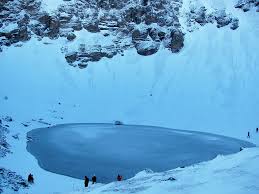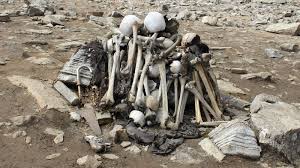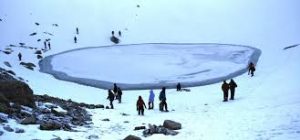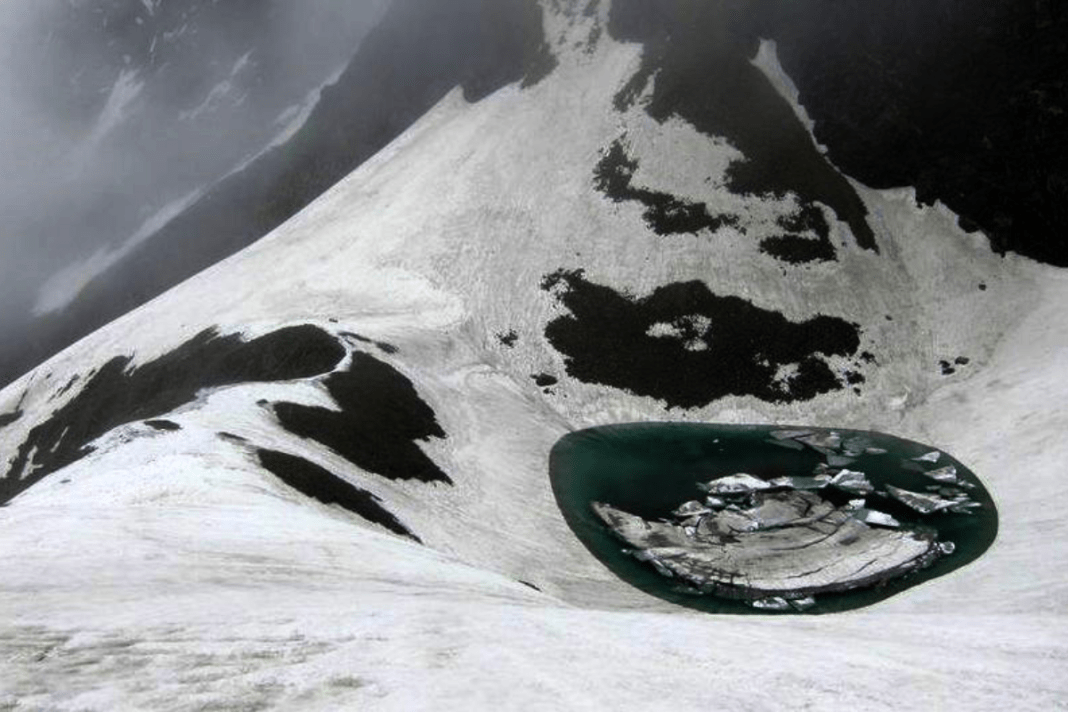Who doesn’t enjoy a visit to a lake in the summer? The serene and peaceful environment often makes lakes a perfect getaway during vacations. However, imagine encountering human skeletons floating in the lake instead of fish. This chilling scenario is a reality at Roopkund Lake in the Himalayas, known as the “Lake of Skeletons.”
Discovery of Skeletons
In 1942, a British forest guard stumbled upon hundreds of human skeletons in Roopkund Lake, located in Chamoli district of Uttarakhand. The lake was filled with skeletons and human bones, leading to immediate speculation and fear. Initially, many believed these skeletons to be of Japanese soldiers who perished while attempting to enter India through the Himalayas during World War II. The British government, alarmed by the potential threat, called in a team of scientists to investigate. However, the investigation revealed that the skeletons were not those of Japanese soldiers but were centuries old.

Scientific Investigations and Theories
Over the years, numerous scientists have studied the Roopkund skeletons, offering various theories about their origin. Some suggested that the people died due to an avalanche, while others proposed that an epidemic might have caused the deaths. Despite extensive research, there has never been a unanimous conclusion about why these human skeletons are in Roopkund Lake, how they got there, or where they came from.
Revelations from the 2004 Study
A significant study conducted in 2004 unveiled shocking details about the Roopkund skeletons. The research determined that the skeletons dated back to the 12th to 15th centuries and that the individuals died due to blunt force trauma to their heads. DNA testing further revealed that the skeletons were from individuals belonging to different geographical locations.

Local Beliefs and Folklore
Interestingly, the local folklore of the Himalayan women includes a song about a goddess who would become angry with outsiders who marred the mountain’s beauty. According to the song, the goddess caused a heavy hailstorm in her rage, leading to the deaths of these people. This belief aligns with the 2004 study’s conclusion that a sudden severe hailstorm might have been the cause of death.
Ongoing Mysteries and Modern Findings
Since the British rangers first discovered the skeletons in 1942, the quest to uncover the truth behind these deaths has continued. In 2021, the BBC reported that skeletons of 600-800 individuals had been found in Roopkund Lake. Remarkably, some skeletons still had flesh on them, preserved by the snow. The Government of India often refers to Roopkund Lake as a lake shrouded in mysteries, with many questions still unanswered. The lake is now strictly off-limits to visitors, as locals claim that mysterious incidents continue to occur there.

Roopkund Lake remains an enigmatic site, with its macabre collection of human skeletons and a history of mysterious incidents. Despite scientific investigations and local folklore providing some clues, the true story behind the Lake of Skeletons continues to elude us, maintaining its allure and mystery.
Also Read : Nautapa 2024: Prepare for Intense Heat and Take Precautions





